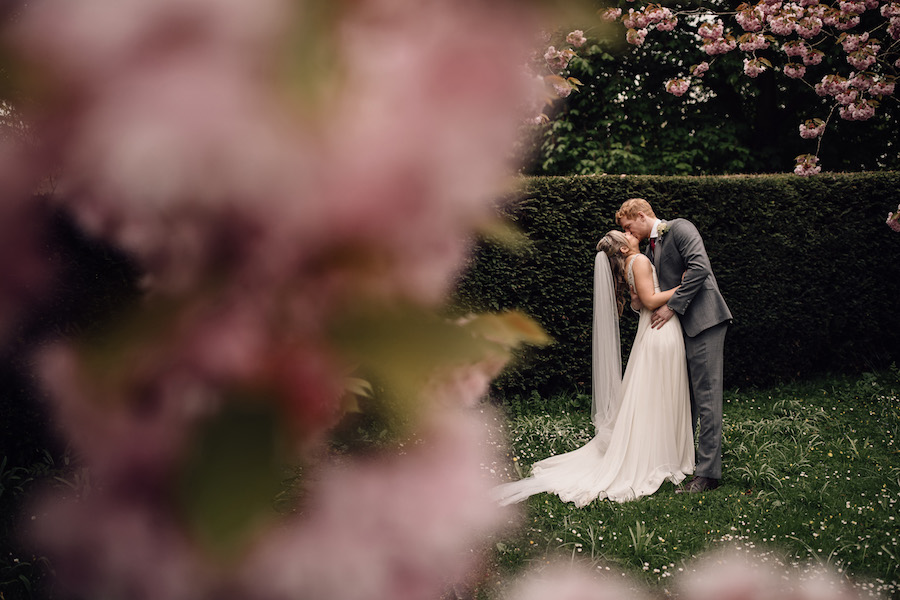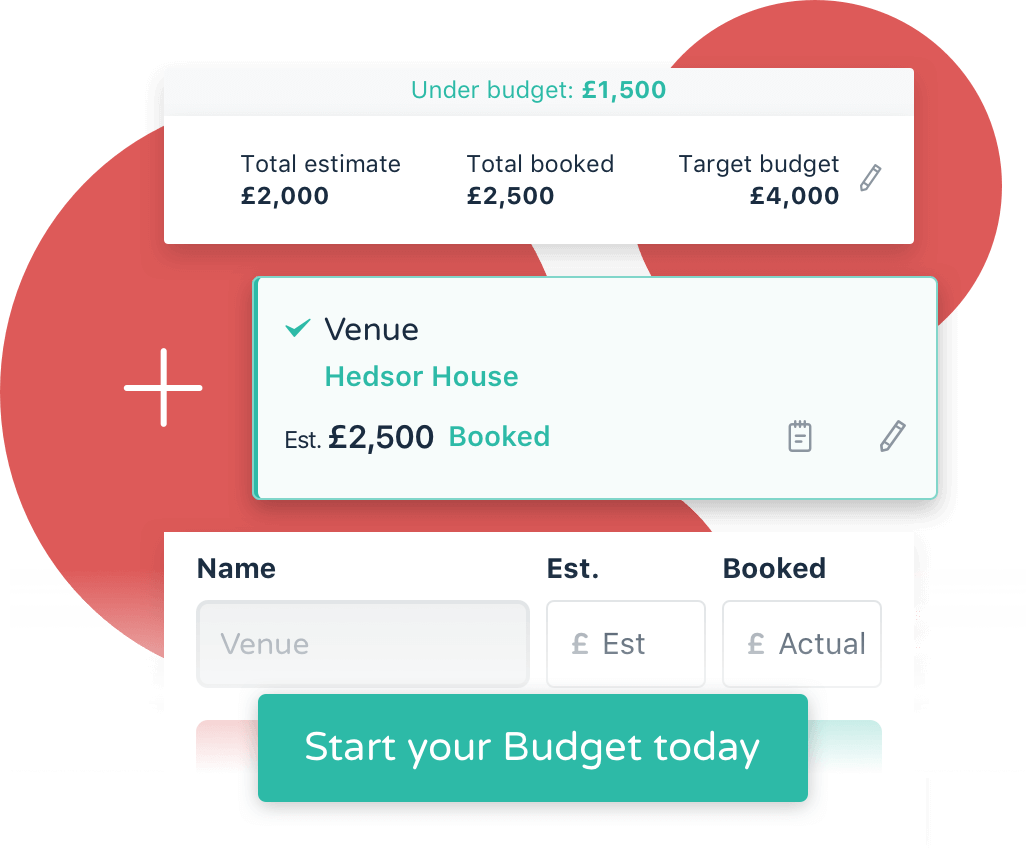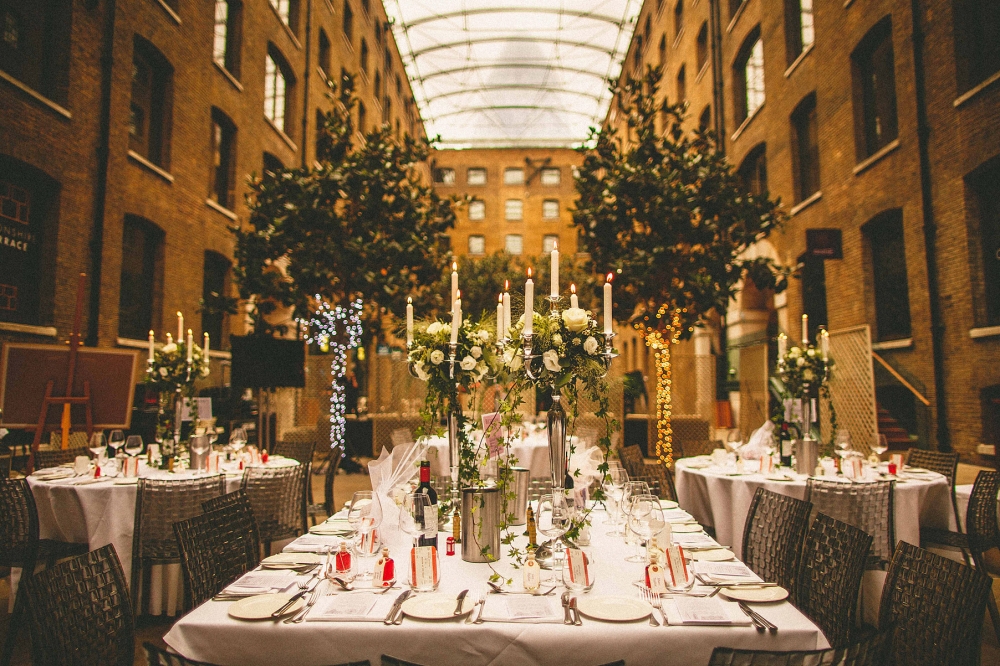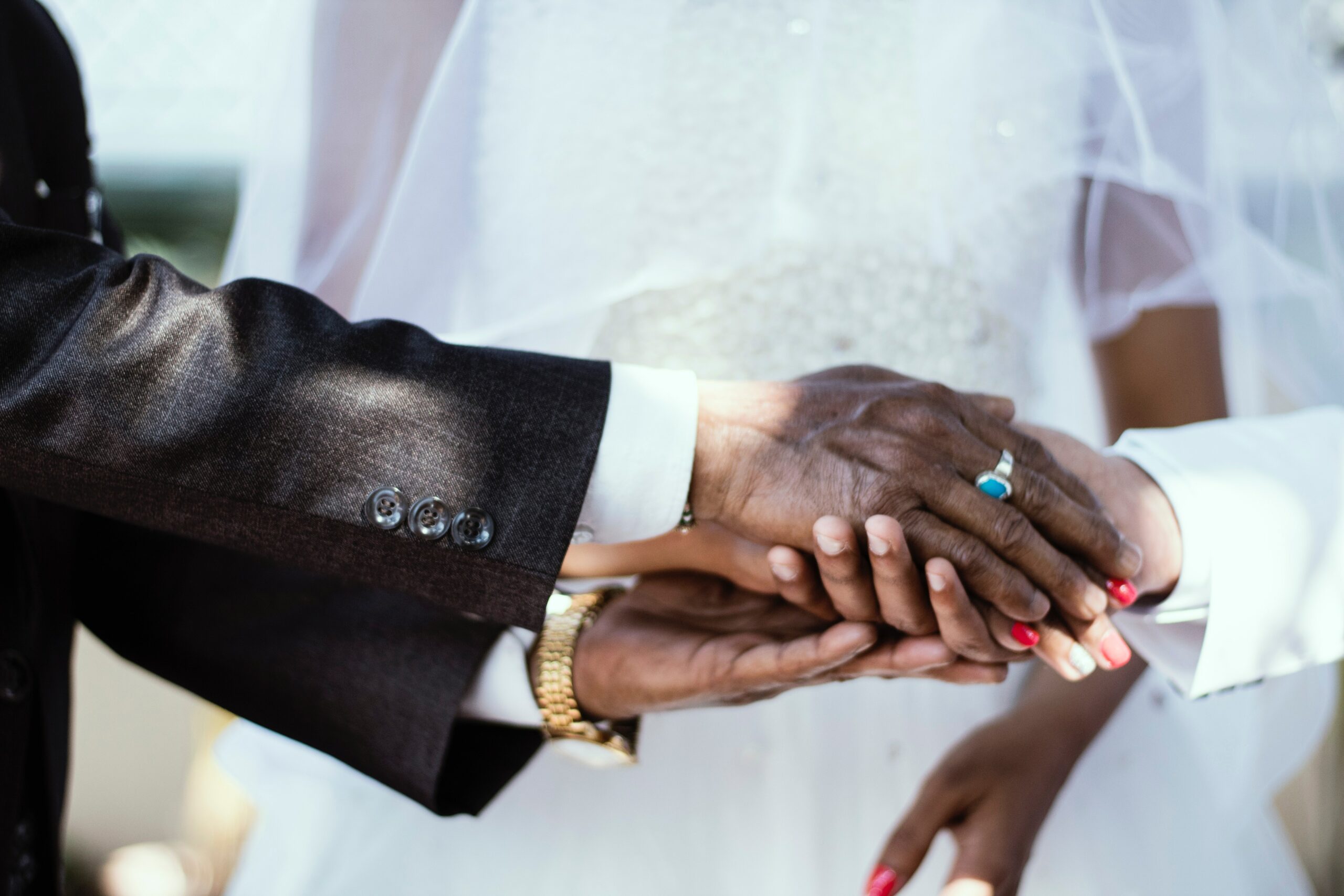Update: The Times has reported that the government will (finally!) lift the 30-person limit on weddings, even if the easing of other lockdown restrictions is delayed beyond June 21.
We will be keeping you all up to date if there are any changes to the rollout of weddings, so you’ll never miss the latest news. Download the Bridebook app today so that you are first to hear of any changes to policy that may affect your wedding.
Whilst restrictions are set to end on the 21st of June, weddings are still likely to be a little different for the next couple of years. The “new normal” will probably still affect a few things at your wedding. And while there may be no major fixed rules, we want to give you some tips on how to navigate through the early days after restrictions end.
Below are our top tips for planning a post-COVID wedding.
1. Keep up to date with latest government restrictions
Firstly, make sure that you know the particular COVID rules in your given area. Remember that there are often slight differences in policy between England, Scotland, Wales, and Northern Ireland. Keep up to date with everything here.
Also, while the government has said that there won’t be different rules for different regions, this policy may change. Particularly, if pockets of the countries see mini-outbreaks. Again, make sure you know the rules for your wedding location and your hometown. This way you won’t get caught out with any last-minute changes.
2. Make contingency plans for guests coming from abroad
One thing that definitely won’t be back to normal straightaway on 21st June is international travel. With new variants and differing vaccination rates, some restrictions on travel are sure to remain for a while.
As a result, we recommend making some contingency plans for any guests who are planning to come from abroad. Keep up to date with which countries are on which lists (red, amber, green). This will ensure you know which guests may need to quarantine and who may need to order tests for early release from quarantine.
Travel rules are likely to remain in flux for some time yet, so do think about how you will mitigate this. Will you still go ahead with some live streaming options? A lot of venues now have this capability so do ask ahead of time. Similarly, we have seen some couples use computer tablets at tables for guests who are abroad and can’t make it to the ceremony.
Have a chat with your partner and work out what will work for you and your day.
3. Check your honeymoon destination
Since travel restrictions are likely to continue, you will also need to keep an eye on the rules for your honeymoon destination. Again, keep up to date with the latest for your particular country at the government-specific site.
Know what the quarantine rules are so that you can book the required time off and make sure you have your tests done well in advance.
Remember to do the same if you are having your hen do or stag do abroad, particularly if your bridesmaids or groomsmen aren’t quite as on-the-ball as you.
4. Keep your guests feeling safe
Even when restrictions end, some guests may still be nervous. It has been a really tough 18 months and some people want to take things a bit more cautiously than others. And that’s fine.
Make sure you know which of your guests might need a little more reassurance in advance. You can then provide badges for people who want to signal to others that they would like to keep their distance a bit more.
You could seat them nearer to open doors or windows to get more ventilation. Simply increasing the number of sanitisation stations around the venue can put some people at ease.
Similarly, if you are a bit nervous about having your wedding straight after restrictions end, let your guests know what you expect from them. This way there won’t be any surprises on the day.
5. Talk to your venue about their safety measures
The staff at wedding venues want you and your guests to feel as safe as possible on your big day.
Many venues now have protocols for making a venue more COVID-secure. This can include greater distancing at tables, one-way systems around the property, and increased ventilation. As we mentioned above, many also have the ability to livestream parts of the event.
Chat to your venue to let them know what things you need on your particular day and they are likely to be very accommodating.
6. Download the Bridebook app
The Bridebook app is where you can get the latest and most up to date news for weddings. If things change, this is where you’ll find out first.
Update your date and let us know where you’ve booked your venue. Then we can provide you with the most relevant information for your specific wedding date and location.
7. Have fun!
Restrictions are due to end on 21st June, so there should be no major rules at your wedding outside of travel restrictions. Instead, it will be up to you to find the right balance for you and your guests. But remember, it has been an incredibly tough 18 months and one that we know people can’t wait to put behind them. People have never been in bigger need of a great party. Your wedding will be a celebration that will live long in the memory. So be safe, but enjoy it! You deserve the best day of your life.









